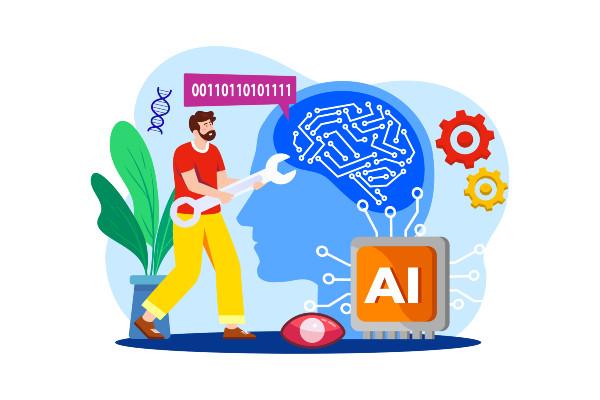Introduction
Artificial intelligence is a powerful tool shaping the future, and with power comes responsibility. This rings especially true for the transformative field of language AI, where developers are entrusted with the task of using this technology ethically and responsibly. Enter ChatGPT Login, a groundbreaking advancement in the field of language AI developed by OpenAI. By providing developers with a sophisticated AI-powered chat interface, the tool introduces new potentials and challenges. It’s crucial that as we explore this tool, we discuss ethical considerations, address inherent biases, promote responsible usage, ensure fairness, and inclusivity, all while advancing its technological capabilities.
In this blog post, we’ll delve deep into the fascinating realm of ChatGPT login, its ethical considerations, ways to promote responsible AI usage, how to address biases, ensure fairness, and inclusivity, and how we can enhance its contextual understanding. We will also explore the practical aspects of ChatGPT login for chatbot development and its integration into third-party applications.
Experience unparalleled performance and reliability with Pixels Web Design’s WordPress Hosting Services, expertly engineered to empower your website with speed, security, and seamless scalability.
Ethical considerations when using ChatGPT Login
The rise of artificial intelligence has brought to light a myriad of ethical considerations that need to be at the forefront of any AI deployment, and the use of ChatGPT Login is no exception. A key question developers need to consider when implementing this technology is data privacy and user consent. The tool can be programmed to engage in in-depth conversations and consequently has the ability to process a significant amount of personal data. As developers, it’s crucial that we respect user privacy and ensure that data collected is processed and stored securely.
Moreover, the ethical usage of AI also involves transparency. When deploying a chatbot using ChatGPT Login, developers need to ensure that the nature of the AI is clearly communicated to the users. Users should be aware that they are interacting with an AI, not a human. This transparency is necessary to maintain user trust and ensure ethical interactions.
Promoting responsible AI usage in ChatGPT Login
Responsible AI usage entails implementing AI systems in a way that aligns with societal values, and safeguards against potential harm. In the context of ChatGPT Login, this means focusing on implementing strategies that prevent misuse of the platform, such as for spreading misinformation or manipulative behavior. As developers, we should invest in strategies that detect and deter such misuse, like using automated detection systems or human moderators.
Additionally, responsible AI usage involves minimizing any potential harm from system errors. ChatGPT, like all AI models, is not perfect and might occasionally make mistakes or produce outputs that are inappropriate or offensive. As part of responsible usage, developers must put in place robust safety measures to mitigate these risks. This can include using reinforcement learning from human feedback to refine the AI’s responses or having additional layers of content filters.
Addressing biases and potential issues in ChatGPT Login
One of the significant issues to address when implementing AI models like ChatGPT is inherent bias. These models learn from a broad dataset that can often include biased information. As a result, the output of the AI system may reflect these biases, inadvertently reinforcing harmful stereotypes or prejudices.
With ChatGPT Login, developers have the responsibility to monitor and address these potential biases. This can be achieved through techniques like bias detection and mitigation in the training data, as well as continuous evaluation and improvement of the model’s performance post-deployment.
Another potential issue is the AI’s ability to generate incorrect or harmful information. This could occur if the model misunderstands the user’s input or if it generates inappropriate content. It’s essential to have mechanisms in place to identify and rectify these problems promptly, such as quality control checks or regular audits of the AI’s responses.
Ensuring fairness and inclusivity with ChatGPT Login
Fairness and inclusivity are fundamental to responsible AI development. When we talk about fairness, we mean that the AI should treat all users equitably and should not discriminate based on factors such as race, gender, or age. For developers using ChatGPT Login, this implies that the chatbot should understand and respond appropriately to a diverse range of users and contexts.
Inclusivity extends beyond this and means that the AI should be accessible and useful to a broad range of users, including those with disabilities. For example, developers might need to ensure that the chat interface is accessible to users with visual impairments or that the chatbot can understand and respond appropriately to inputs from users with various language skills or cultural backgrounds.
Leveraging ChatGPT Login for chatbot development
ChatGPT Login represents a significant opportunity for chatbot development, providing a sophisticated AI model that can engage in natural, human-like conversations. Developers can leverage this technology to create a wide range of chatbot applications, from customer service assistants to personalized learning tutors.
A key advantage of using ChatGPT Login for chatbot development is its advanced natural language understanding capabilities. This means the chatbot can understand and respond appropriately to complex user inputs, making the interaction more engaging and effective for the user. Furthermore, the versatility of ChatGPT Login allows developers to tailor the chatbot to specific applications or user groups, further enhancing its usefulness.
Artificial Intelligence and Deep Learning with Python
Are you wearied by deep learning resources that don’t clarify every single line of code? “Artificial Intelligence and Deep Learning with Python” revolutionizes the way deep learning, AI, and Python are introduced to beginners. The author draws an insightful analogy, equating a computer language with any other language, asserting that understanding every component of a sentence or a line of code is vital to generate novel ones. Unlike other resources claiming to be for “beginners”, this book stands out by dissecting and explaining every line of code.
There’s nothing more perplexing than encountering an unexplained line of code after an initially well-explained one. This book ensures a seamless learning journey with comprehensive explanations for each line of code in every project discussed, along with detailed insights into deep learning and AI concepts. Whether you’re a Python novice or a seasoned programmer, this book will guide you through the intriguing applications of Python in diverse AI and deep learning projects.
You’ll dive into captivating projects and topics, including:
- Deep learning applications in audio/music and voice recognition
- Neural network implementations with image files
- Creating an algorithm for predicting stock prices
- Applying AI through Thompson sampling
- Using deep learning for crime statistic predictions
- Binary classification with neural networks
- Building a Convolutional Neural Network (CNN) for your image files
- Teaching your computer to “read” and “comprehend” the English language
- SQL integration with neural networks
About the author: Steven D’Ascoli, an adjunct professor at St. John’s University, is renowned for his multi-disciplinary expertise.
Integrating ChatGPT Login into third-party applications
Another exciting aspect of ChatGPT Login is its potential for integration into third-party applications. This opens up a myriad of opportunities for developers to bring the power of conversational AI to their platforms.
Integration involves leveraging the ChatGPT API to enable chat functionality within existing applications. The process requires a clear understanding of the API’s functionality and knowing how to correctly implement it to ensure seamless conversation flow. With successful integration, developers can use ChatGPT Login to enhance user interaction and engagement, providing a richer and more personalized user experience.
Enhancing contextual understanding with ChatGPT Login
One of the standout features of ChatGPT is its ability to understand context within conversations. This is critical as understanding context is key to maintaining coherent and engaging conversations. With ChatGPT Login, developers can leverage this advanced contextual understanding to create chatbots that can follow complex conversation threads and provide more relevant and meaningful responses.
Despite this, improving the AI’s contextual understanding is an ongoing challenge. It involves refining the model’s ability to keep track of long conversations, understand nuances, and adapt its responses based on the conversation’s context. However, with continued development and refinement, ChatGPT Login promises to deliver even more sophisticated conversational AI capabilities in the future.
Conclusion
Navigating the ethical and technological terrain of ChatGPT Login requires a thorough understanding of its capabilities, limitations, and implications. As developers, we must bear the responsibility to ensure that this powerful tool is used ethically, responsibly, and effectively. This includes respecting user privacy, promoting transparency, preventing misuse, addressing biases, ensuring fairness, inclusivity, and continually improving the technology.
ChatGPT Login offers exciting opportunities for chatbot development and third-party integration. Its advanced natural language understanding and contextual capabilities make it a powerful tool for creating engaging and effective chatbot applications. However, with these opportunities come challenges that developers must be prepared to face, such as ensuring the chatbot is fair, inclusive, and free from bias.
It is clear that ChatGPT Login is a transformative tool in the realm of conversational AI. However, the journey to fully leveraging its capabilities while navigating its ethical considerations is a continuous one. The future of AI lies not only in technological advancement but also
in our commitment to ethical and responsible usage. As we continue to explore this exciting frontier, we must ensure that we are creating technology that benefits all and harms none.
The prospect of integrating ChatGPT Login into third-party applications opens up a realm of opportunities for enhancing user interaction and personalizing the user experience. It’s a promising advancement, but developers must be mindful of the intricacies of the integration process and the ethical considerations it brings along.
Finally, the ongoing challenge of enhancing ChatGPT’s contextual understanding represents both a hurdle and a beacon for future development. As we continue to refine this capability, we edge closer to a future where AI-powered chat interfaces can engage in conversations as fluently and contextually aware as humans.
In the grand scheme, it’s crucial to remember that at the heart of all this innovation, development, and integration, lies the users. It’s our responsibility to create a technology that not only caters to their needs but also respects their rights, understands their context, and contributes positively to their experience.

Navigating the Convergence: Artificial Intelligence and the Legal Sphere
Artificial Intelligence (AI) has transformed multiple sectors, including the field of law. This blog post delves into the legal aspects of AI, the regulatory landscape, and AI’s role in legal practice. It also explores AI’s impact on privacy law and the ethical quandaries it presents. A comprehensive look at the intriguing intersection of AI and law.






